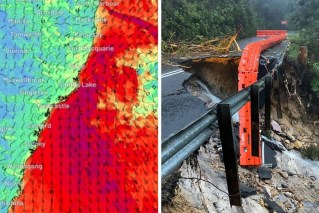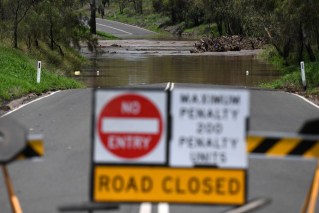2018 was fourth-warmest year on record


A warming planet is making it harder to predict the weather, according to a new report. Photo: ABC
2018 marked the fourth-hottest year in almost 140 years, as the Earth heads towards the warmest decade recorded, NASA climate scientists say.
The past five years have been the hottest since record-keeping began in 1880. But British meteorologists predict the next five years will be much hotter, maybe even record-breaking.
“We’re no longer talking about a situation where global warming is something in the future,” Gavin Schmidt, director of NASA’s Goddard Institute for Space Studies, said.
It’s here. It’s now.”
The Earth’s surface temperature in 2018 was more than one degree above the average temperature of the late 19th century, when humans started pumping large amounts of carbon dioxide into the atmosphere.
Scientists say that if the world is to avoid the worst consequences of climate change, global temperatures must not rise by more than two degrees on pre-industrial levels.
The US government’s National Oceanic and Atmospheric Administration said 2018’s average temperature was 14.69 degrees, which is 0.79 degrees warmer than the 20th century average. Much of Europe had its warmest years on record. Records go back to 1880.
NASA and NOAA climate scientists said even though 2018 was slightly cooler than the three previous years, that’s mostly due to random weather variations.
“Never mind the little wiggles from year to year. The trend is going relentlessly up, and it will continue to do so,” Potsdam Institute climate scientist Stefan Rahmstorf said in an email. “Those who live in denial of this fact are in denial of physics.”
Using computer simulations, the British weather office forecast that the next five years will average somewhere between 14.73 and 15.27 degrees. That would be warmer than the past four years.
Outside scientists, such as Natalie Mahowald of Cornell University, said the forecast was consistent with what researchers know about warming and natural variability.
The obvious long-term trend of steady warming made it easier to more accurately predict near future warming, Dr Schmidt said.
The US temperature in 2018 was the 14th warmest on average, NOAA climate monitoring chief Deke Arndt said.
Last year was also the third-wettest on record in the US. Nine eastern states had their wettest years on record, “an exclamation point on a trend of big rain” in the age of climate change, Mr Arndt said.
-with AAP








